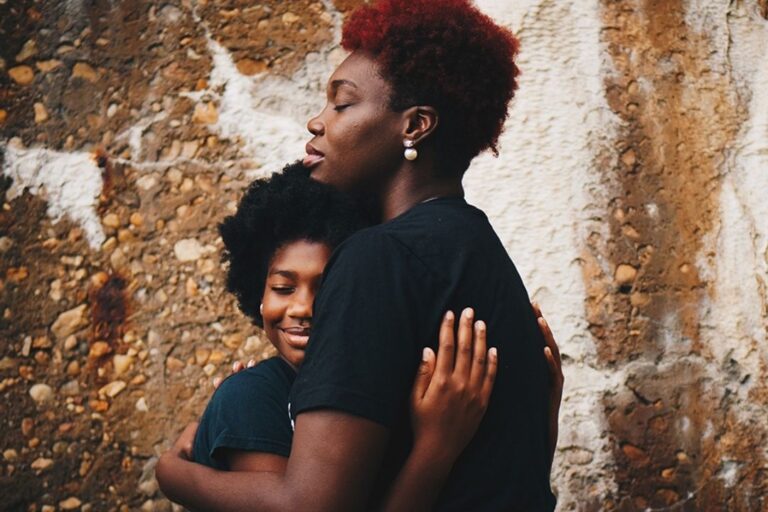I awaited my cappuccino with a foggy mind and heavy heart. Why is the Acton journey so hard for parents, me included? How can we build that simple, binding trust in the process so parents feel confident even when it’s hard? Why is it hard for us to trust our children and let them experience frustration and even failure and pain?
Suddenly I heard a familiar voice from my past, “Laura?” I spun around. There stood Sandy.
Seeing her was better than a jolt of caffeine. “You are just the person who can help me.” Sandy had been an Acton mom a few years back. Her daughter went through our middle school and was part of our first two years of Launchpad.
Sandy’s experience with us was the quintessential hero’s journey for a parent. She was an important intellectual helper to us then – and continued to be when her daughter left Acton before her senior year in Launchpad to pursue an independent path studying Arabic and ultimately nursing.
Sandy had been in the US Air Force and was a psychiatric mental health nurse practitioner. Well-read and deeply curious, her feedback to us always came in the form of questions – great ones. She wanted the “why” behind our processes and decisions.
“How can we make the Acton parent journey easier?” I asked her.
In her usual quick-thinking way she answered. “Have you really, really articulated the Acton cultural expectation that kids should fail – and that failure may take a good bit of time to turn into success?” Hmmm.
Our conversation was cut short as our coffees arrived and we both had places we needed to be. I kept asking questions over email later that day. She gave me permission to share her responses. I hope you enjoy her thoughts. Moreso, I hope they lift your eyes to possibilities.
Here are Sandy’s words:
I learned so much from being an Acton parent and I wouldn’t trade the experience for anything. There is absolutely no question that my life would not be what it is today had I not cultivated an Acton mindset. I grew a great deal by learning to parent our daughter through her “failures” at Acton (some of these “failures” lasted years and required lots of humble learning).
Jeff was also remarkably patient with our family’s induction into the Acton mindset. In addition to my own experience, I also had the opportunity to observe how several other parents handled the sometimes bumpy waters of putting a child into such a novel learning environment.
The job of an Acton parent is complex because the current parental culture favors rescue and over-involvement. Acton is thus swimming against the tide of culture. It is one thing to cognitively assent to a strategy of supportive non-rescue of children in general but is a wholly different matter when you see your own child failing. This creates enormous pressure, confusion, and fear.
I love this quote and I think it exemplifies the difficulty Acton parents face: “The test of a first-rate intelligence is the ability to hold two opposed ideas in mind at the same time and still retain the ability to function,” (F. Scott Fitzgerald).
The opposing ideas are support and non-rescue (action and non-action; involvement and non-involvement).
An Acton parent’s job is to actively support the child’s growth AND actively restrain the impulse to rescue a child from failure, shame, and pain.
It actually requires a parent to have enough emotional intelligence to recognize that failure, shame, and pain are not life-threatening. When our brains perceive danger (failure, shame, and pain all feel like danger neurobiologically), everything in our brain screams: “Get the child to safety!” The problem is that safety (in this instance) most truly lies in allowing a child to experience failure so that the child can then learn to get up.
Brene Brown talks about the ways people wither under shame, pain, and failure. She then offers counterpoint for the wholehearted way to respond to shame, pain, and failure.
Here are a few things we did as a family to support our daughter’s Acton journey:
1. We decided that quitting while failing wasn’t an option. First, build success, then evaluate the fit between Acton and her goals.
2. I took her to counseling so she could identify her barriers with a neutral party. (She was struggling with anxiety and depression but did not know what to call her own emotional state. Thus, she was not telling me how she was really feeling.)
3. We started decoding her experience of anxiety (and that cleared up the depression).
5. We decoded her habit of procrastination and built habits to counter her tendency to freeze under pressure.
6. We invested in resilience and strength-building (NOLS, MMLA, learning Arabic, full moon swims at Barton Springs, etc).
7. We celebrated success and decoded “failure”. (She had a tendency to not celebrate success because she was always thinking about how far behind she was. Making sure she got her dopamine hit after small success helped improve her mindset).
8. We built her capacity to tolerate being uncomfortable. (THIS IS HUGE and can save a child from folding/freezing later in life).
9. We stopped looking at her hero’s journey as finding an optimal fit and worked on identifying things she could tolerate that others found intolerable (Arabic). Once she had Arabic, she had something that was hers that she could be proud of. Did she LOVE Arabic? No! She could, however, tolerate the discomfort of it and that gave her confidence.
My final thought is that parents are vital partners. Because of all that I learned, I would wish for other parents to benefit as I did. If there is a way to retain parents as part of the Acton culture, I see this as the highest good (though certainly not the easiest).
Thank you, dear Sandy.



